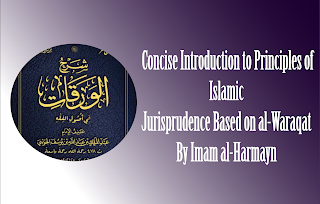72:1 Say, ‘It has been revealed to me that a company of the jinn listened to the Quran, and said, ‘Truly, we have heard a wondrous Quran.
72:2 It guides to the right path, so we believe in it. And we shall never worship anyone besides our Lord.
72:3 And we believe that He, Exalted be the glory of our Lord, has taken neither a wife nor a son.
72:4 And the foolish among us used to say outrageous lies against Allah.
72:5 And we thought that men and jinn would never speak a lie against Allah.
72:6 And there were some men, who used to take refuge with certain men of the jinn, but they increase them in wickedness.
72:7 And they thought as you thought that Allah would never resurrect anyone.
Tafsir
72:1 Say, ‘It has been revealed to me that a company of the jinn listened to the Quran, and said, ‘Truly, we have heard a wondrous Quran.
72:2 It guides to the right path, so we believe in it. And we shall never worship anyone besides our Lord.
Abdul Allah Ibn Abbas, may Allah be pleased with them, reported that Messenger Muhammad neither recited the Quran to the jinn nor did he see them. He set out with some of his companions to the market of Okaz. The jinn were prevented from eavesdropping on the news of heaven and shooting stars were sent against them. Then, the devils returned to their people and said, ‘What is the matter with you?’ They said, ‘We have been prevented from listening to the news of heaven, and shooting stars have been sent against us.’ Their people said, ‘Nothing has prevented you from listening to the news of heaven except for something that has happened. Thus, go to the eastern and western parts of the earth and find out what has happened.’ Then, they went forth to the eastern and western parts of the earth to find out what prevented them from listening to the news of heaven. Some of the jinn went to the region of Tihamah. They found Messenger Muhammad in a place called Nakhla while he was going to the market of Okaz. He was leading his companions in the morning prayer. When they heard the recitation of the Quran, they listened to it. Then, they said, ‘This is the reason that prevented you from eavesdropping on the news of heaven.’ Thereupon, they returned to their people and said, ‘O our people, ‘72:1 Say, ‘It has been revealed to me that a company of the jinn listened to the Quran, and said, ‘Truly, we have heard a wondrous Quran.72:2 It guides to the right path, so we believe in it. And we shall never worship anyone besides our Lord.’
Allah, Exalted be He, commanded Messenger Muhammad to inform people what the jinn did when they heard the recitation of the jinn. This indicates that the matter is important and deserves attention and compliance from the listeners.
O noble Messenger Muhammad, ‘Say, It has been revealed to me that a company of the jinn listened to the recitation of the Quran. After listening to it, they said to their people, ‘Truly, we have heard a wondrous Quran that guides to the right path. Therefore, we have believed in it and we shall never worship other gods besides Allah.’
The intended meaning is inviting the disbelievers of Makkah to believe in the message of Islam just as the jinn have believed in it, and informing them that the message of Islam is for both human beings and the jinn.
Imam Al-Qurtubi said, ‘The scholars differ about the origin of the jinn. It was narrated from Al-Hassan Al-Basri that the jinn are the children of Satan and the human beings are the children of Prophet Adam. Some of the jinn are believers while others are disbelievers, and they will be rewarded for their righteous deeds and punished for their sins. The believers among the jinn are allies of Allah and the disbelievers among them are devils.’
Allah, Exalted be He, informs that the jinn can perform hard work. Allah subjugated the jinn for Prophet Solomon [peace be upon him] to make whatever thing he wanted, such as places of worship and statues. He also informs that some of the jinn are believers in the Oneness of Allah and some of them are rebellious, among which is Satan. Followers of all creeds have no disagreement on the existence of the jinn, and they acknowledge it just like the Muslims. However, they disagree about their nature, and there is no correlation between the existence of something and acknowledging facts about it, nor between its existence and seeing it with the senses. The reality of many existing matters are still unknown, their secrets are veiled, and many of them cannot be perceived by the senses. The soul, which there is no doubt about its existence in men and animals, no one knows its nature and no one sees it. Only some of its attributes and effects are known.
Allah, Exalted be He, sent Messenger Muhammad [peace be upon him] to the jinn just as He sent him to human beings. He called the jinn to believe in the Oneness of Allah, warned them of disobeying the commands of Allah, invited them to believe in the Quran, and informed them that they would be called to account for their deeds on the Day of Judgment just as human beings would be called to account for their deeds. Some of the jinn are believers while some of them are disbelievers. All this information is explicitly mentioned in the Quran and authentic Prophetic narrations.
72:1 Say, ‘It has been revealed to me that a company of the jinn listened to the Quran, and said, ‘Truly, we have heard a wondrous Quran.
The jinn described the Quran as wondrous, which indicates that they were extremely affected by it, and impressed by its great, masterful composition, and its marvelous meanings. Therefore, they declared believing in it without any hesitation.
Then, surah Al-Jinn mentions what the jinn said after listening to the Quran and believing that Allah revealed it.
72:3 And we believe that He, Exalted be the glory of our Lord, has taken neither a wife nor a son.
The jinn said, ‘We have believed in Allah and His Prophet and Messenger Muhammad. He, Exalted be the glory of our Lord, has the most perfect names and attributes. He has never a partner in His kingdom; He has taken neither a wife nor a son.’
This statement by the jinn refutes the claim of the disbelievers, who allege that the angels are the daughters of Allah, Exalted be He.
In sum, the jinn confirm and believe in the Oneness of Allah, and declare that Allah, Exalted be He, has neither wife nor a son.
72:4 And the foolish among us used to say outrageous lies against Allah.
The foolish in the ayah may refer to Satan or the disbelievers among the jinn.
The jinn say, ‘We glorify Allah and confirm that He, Exalted be He, is free from all outrageous lies that they used to say about Him. We affirm that our Lord is free from having any partner, a wife, or a son. These outrageous statements are sheer lies against Allah, Exalted be He.’
72:5 And we thought that men and jinn would never speak a lie against Allah.
This statement of the jinn mentions why they disbelieved in the Oneness of Allah, Exalted be He.
After listening to the recitation of the Quran and believing in the Oneness of Allah, the jinn say, ‘We followed our fellows among the jinn. They were disbelievers in the Oneness of Our Lord, Allah. We followed them because we thought that men and jinn would never speak a lie against Allah, Exalted be He. We never thought that no creature could dare to say a lie against Allah and claim that He has a partner, a wife, or a son. We believe that our Lord, Allah, is free from having any partner in His kingdom.’
72:6 And there were some men, who used to take refuge with certain men of the jinn, but they increase them in wickedness.
Some men used to take refuge with the jinn when they traveled and alighted at a particular place. This action of the men made the jinn increase in wickedness and wrongdoing.
Abdul Allah Ibn Abbas, may Allah be pleased with them, said, ‘When some men slept at a particular valley during the time of ignorance, he used to say, ‘I seek refuge with the great master of this valley.’ Thus, the jinn increased in wrongdoing.’
The ayah refers to the widespread corruption during the ignorance era before the advent of Islam. Some people used to believe that the jinn were able to benefit and harm them. Therefore, they used to seek refuge with the jinn to protect themselves from the evil of the jinn, which was a wrong practice.
72:7 And they thought as you thought that Allah would never resurrect anyone.
The believers among the jinn denounce the attitude of the disbelievers towards the resurrection on the Day of Judgment.
The jinn said, ‘Men thought as you, the jinn, thought that Allah would never resurrect anyone after death for reckoning and that Allah would not send a messenger to invite people to worship Him alone.’
This assumption of the jinn and men that there will be no resurrection after death for reckoning is wrong; rather, the Day of Judgment and resurrection on that day will certainly take place. The believers will be rewarded and the disbelievers will be punished on that day.
Learned Lessons from Surah Al-Jinn Ayah 1-7
• Mentioning the story of the jinn has many benefits, among which are the following: demonstrating that the jinn are required to perform Shariah obligations just like people, some of the jinn are believers while others are disbelievers, Messenger Muhammad was sent to both men and the jinn, and the jinn hear and understand the speech and language of men.
• The jinn believed when they heard the recitation of the Quran and determined not to worship any god besides Allah, Exalted be He.
• The jinn confirm that Allah is One and has no partner, wife, or son.
• The jinn denounced the outrageous claim of their fellows among the jinn about Allah.




